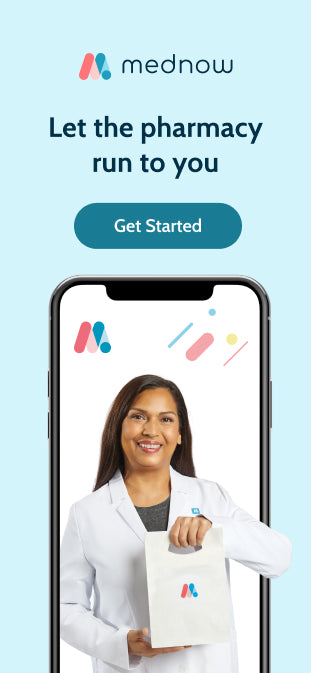Did you know that the cost of prescription medicine typically includes a pharmacy dispensing fee?
While these fees may differ from one pharmacy to another, a pharmacy dispensing fee is a regular part of the charge for a pharmacy service.
As an online pharmacy that prioritizes personal care and fast prescription services, we aim to empower our customers to make informed choices. With this in mind, let’s explore the ins and outs of pharmacy dispensing fees and how they impact your total medication cost.

What is the dispensing fee and how does it impact my total prescription cost?
The dispensing fee is a cost that is charged by a pharmacy every time they fill a prescription. The fee covers the pharmacist’s advice and expertise, purchasing and stocking inventory, supplies needed to package and ship medications, and other general overheads involved with operating the pharmacy.
Your pharmacy will charge a dispensing fee per prescription. Hence, if you have three prescriptions and the pharmacy has a $10 dispensing fee, the total amount you would pay for dispensing fees would be $30. This is not the total cost of your prescription.
Your total prescription cost will be made up of:
- Cost of the medication
- Mark up on the medication
- Pharmacy dispensing fee
Why do pharmacies charge a dispensing fee?
Dispensing fees help pharmacies operate their business because the cost of running a pharmacy can be quite expensive. For example, medications must be at a specific temperature to ensure that they are fit for consumption. Some medicines, including insulin and vaccines, need to be refrigerated at all times.

Other items that contribute to the dispensing fee include:
- Maintaining patient records and prescriptions, which can also include checking in with your doctor as your health changes.
- Cybersecurity: Equipment and computer systems used in pharmacies also make up a large part of their operational costs. Since pharmacies store patient information and sensitive records, they use secure processing and storage systems to ensure patient information does not get leaked.
- Keeping medications in stock for patients. Pharmacies may also employ automatic ordering systems to maintain adequate inventory levels.
- Dispensing costs, including labelling and packaging materials.
- Assessments: Your pharmacist is readily available to discuss your prescription and health needs. These consultations are covered as a part of your dispensing fee. You pay the dispensing fee when you get your medication but have unlimited access to your pharmacist afterwards if you have questions or concerns about your medication or health.
- Other operational costs such as shipping, storage, etc.
Why do you have to pay the dispensing fee?
While most people don’t even realize that the dispensing fee is included in the overall cost of their medication, it is money well spent. Just as you would pay for the services of a plumber or chiropractor, the dispensing fee makes sure that the pharmacist is compensated for their service.
A pharmacist offers expert medical advice and personalized counselling for each prescription. During this exchange, the pharmacist will educate the customer on how to manage possible side effects, how to administer the drugs and answer any other questions.
Pharmacists will also ensure that the medication is an effective treatment option and is compatible with the customer’s existing health conditions (or current medications).

Does health insurance cover dispensing fees?
While most health insurance policies will cover dispensing fees and other prescription fees, not all do. Different insurance policies will set varying prices for prescription drug coverage, so make sure to review and scan your insurance plan thoroughly to understand what percentage of dispensing fees they cover. In the majority of cases, patients will not pay more than a few dollars of the dispensing fee as their health insurance plan covers the vast majority of it. In many cases, health insurance plans cover all of the dispensing fee, so the out of pocket cost for the dispensing fee is actually $0!
How to save money on prescription meds?
Compare prices
Dispensing fees vary for every pharmacy. Sometimes, you’ll find that there is a big difference in the charges - even within your neighbourhood. Keep in mind though that it isn’t always about the fee. If the pharmacy service is exceptional, it could be worth spending a bit more for the superior overall experience.
Ask about generic medications
A generic drug contains the same active ingredients as the original patented substance it was based after. Generic medications are typically less pricey than branded ones, yet they work just as effectively. Both branded and generic drugs undergo thorough testing by their manufacturers and are approved by Health Canada to verify their potency, safety, and quality.
Get a larger supply
If you are able to manage larger supplies, for medications that you need to take regularly, you might want to consider getting three months’ worth. The dispensing fee will be charged per refill for your prescription, so if you opt to have it filled four times a year instead of every month, you would save a notable amount of money. Just make sure to check with your doctor first if they plan to adjust your dosage within the next few months. It is important to note that health insurance plans may place limits of how much you can get, check with your insurance provider for more details.

New Insurance plan
Not all insurance plans have comprehensive coverage for dispensing fees. Review your insurance policies and try to compare what other companies offer to ensure that you’re getting the best deal out of your insurance. Healthcare doesn’t come cheap, and prevention is still the best insurance plan, so make sure that you have one that helps you stay healthy without costing an arm and a leg.
Average cost of dispensing fees
It might be tedious to shop around for dispensing fees, so we’ve provided a sample of some pharmacies below. While shopping around, you’ll find that some pharmacies charge higher dispensing fees than others.
Our dispensing fee is $10.99 across Canada
As a guideline, consider the average cost of dispensing fees at the following major retail pharmacies:
- Loblaws Pharmacy - $10.99
- Metro Pharmacy - $10.99
- Rexall - $12.99
- Shoppers Drug Mart - $11.99
- Sobeys - $10.49
- Walmart - $9.97
Shop online (Mednow)
You can also turn to online shopping for your medication needs. Mednow offers fast and free delivery on all pharmacy products in their active locations. Your medications will be shipped through contactless delivery directly to your home. It takes the hassle out of picking up your prescriptions and helps you save costs.
You can have your prescriptions transferred from your current pharmacy. That way, you can get your refills on time without having to leave your home.
If you don’t have a prescription, you can also book an appointment with an online doctor through Mednow Virtual Care, which is currently available in Ontario.
This article offers general information only and is not intended as medical or other professional advice. A healthcare provider should be consulted regarding your specific situation. While the information presented is believed to be factual and current, its accuracy is not guaranteed and it should not be regarded as a complete analysis of the subjects discussed. All expressions of opinion reflect the judgement of the authors as of the date of publication and are subject to change. No endorsement of any third parties or their advice, opinions, information, products or services is expressly given or implied by Mednow or its affiliates.
Commencer
